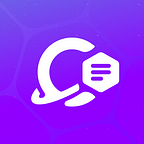Is Productivity and Time Management the Same?
What do you believe, that all productive people are good at time management? Is everyone who effectively manages time productive? Let’s see what is the difference between these two concepts as many of us confuse them in everyday life.
Simple Concepts
In general, productivity means how many tasks one deals with in a certain period of time.
If we consider two persons (let’s name them Jack and John), and Jack copes with two similar tasks a day and John deals only with one such task, Jack will be considered more productive. But does that mean that Jack uses some time management techniques to get things done? This can be optional.
Here are a few examples of how people commonly measure productivity:
- Money generated per hour/day
- Work done per hour/day
- Money generated VS money spent.
Sure, time management skills are essential to meet deadlines and be the most productive employee in your company, however, they are not the only things you need for that. Experience, strategy, tactics, hard and soft skills contribute to your success.
Time management is a separate discipline answering the questions about managing productivity, setting priorities, and effectively organising workflows.
So, productivity and time management are interconnected although they exist separately.
By the way, we have already covered the topic of highly effective productivity tips, so let’s now focus on time management hacks that will increase your productivity.
Tips on Time Management Leading to Better Productivity
Why is time management important? According to TechJury, “up to 80% of the average working day is spent on activities with little or no value”. Inc.’s author David Finkel researched that people are wasting on average 21.8 hours each week on unimportant activities. Since working weeks have only 40 hours, the problem seems to be terrifying — people spend more than half of their working time on what will not bring any result for the business!
These non-valuable activities “eat” your results (as well as career prospects) and negatively affect productivity. So, let’s find out how to deal with this issue using time management techniques!
Keep Track of Time Use
No matter how much time you invest in activities if you are striving to achieve ambitious goals. Assessing how you spend your workdays will help you get rid of ineffective time-consumers and procrastination. Track everything using a paper notebook or an app (like Collabio or any other note-taking app).
- Create a time journal consisting of 15-minutes periods. Write down everything you did during the day.
- Analyzing your journal at the end of the day will reveal distractions and show if all the goals set for this day were achieved.
- Also, you will discover your most productive period of the day.
- The analysis will show how much time you spend on various types of tasks. Maybe, an idea of attending the next online course will come to mind. Skills and experience are the base for efficiency.
Plan and Schedule
The technique of tracking what you do during the day can be supplemented by scheduling your upcoming days and weeks. Make sure you will have enough time for everything — put the most important and urgent tasks first. Set reminders or alarms for the time when you have to switch to other tasks.
Here are some tips on scheduling:
- Try to use only one method for noting your tasks. If it’s a mobile app, add new tasks directly there, don’t write them separately in a notebook or on a sticky note. This will only disorganise you and important tasks might be lost under tons of paper!
- If you use both digital and paper planners, dedicate a couple of minutes daily to sync them.
- Using mobile apps is more effective, as you always have a mobile phone with you, while carrying a paper notebook everywhere may be inconvenient.
- Look through your plans every morning before you get to work. This should be a habit.
Determine Priorities
Here’s the know-how for prioritising tasks to achieve the highest results in the shortest time frame. We know that many specialists, especially team leaders, try to control everything and suffer from the lack of time for tons of tasks. It’s a normal thing as no one has more than 24 hours in a day, that’s why prioritising is key for time management and productivity.
One of the best time management techniques is the Eisenhower method. It originates with a quote from Dwight D. Eisenhower, the 34th President of the US: “I have two kinds of problems, the urgent and the important. The urgent are not important, and the important are never urgent.”
By the way, if you don’t have an in-house team member to delegate a piece of not very important work, use freelance websites.
Personalised Time Management for Everyone
To sum it up, let’s take a look at questions that will help you organise your schedule the most productive way, as knowing yourself is the first-priority task:
- What personality traits help you do more (perseverance, responsibility, attentiveness, etc)? Which of them could be enhanced?
- How well can you organize your day/week/month? Do you need special software for alerts or reminders, or can you keep everything in your head?
- What about your strategic thinking? How well can you align your current activities with far-reaching goals?
- Do you possess enough self-discipline to cope with working issues remotely (under global quarantine)? Can you set checkpoints for everyday work by yourself?
- How do you track the progress and do you need some external control for that?
Based on your answers to these questions, define which skills you should improve and what auxiliary tools can you use to manage your time and personal productivity as a pro! ;)
